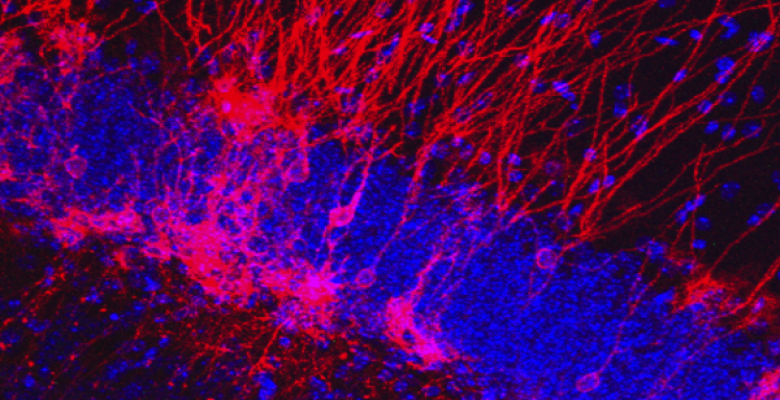People with anxiety disorders such as post-traumatic stress disorder (PTSD) often have impaired pattern separation—the process by which similar experiences are transformed into distinct memories. They often react to events that resemble their original trauma, even when in safe situations. In a recent review in "Nature Neuroscience," Rene Hen, PhD, of Columbia’s Department of Psychiatry and the New York State Psychiatric Institute, and colleagues suggest that drugs that promote neurogenesis—the production of new neurons—may play a potential role in treating impaired pattern separation.
In the hippocampus, the dentate gyrus—which uses pattern separation to form new memories—is one of two areas of the brain where neurogenesis takes place. Although the extent of adult neurogenesis in humans, as well as its role in stress responses, is controversial, Hen and his team think that a reduction of hippocampal neurogenesis contributes to the impaired pattern separation underlying anxiety disorders. Structural MRI studies of the brains of PTSD patients have shown decreased volume of the dentate gyrus. Two potential approaches to improving pattern separation are to increase the number of adult-generated neurons or to modify the mature neurons so they are better able to process information.
The researchers emphasize the need to develop better imaging techniques to observe ongoing neurogenesis in the human brain. Eventually, clinical trials could be carried out with patients who show both impairment in pattern-separation tasks and decreased neurogenesis in the dentate gyrus.
“Neurogenesis and generalization: a new approach to stratify and treat anxiety disorders” appeared in the December 2012 issue of "Nature Neuroscience."

